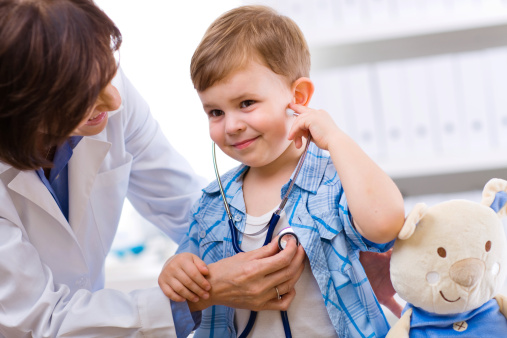What do Measles, Babies and Disneyland Have in Common?

By: Holly L. Thacker, MD • Posted on January 25, 2015
Measles was on its way of going the way of smallpox in the United States - Extinct. In the year 2000, measles was listed as an eradicated disease in the U.S. So, why are we now in the midst of an epidemic that has been pinpointed as initially beginning in Disneyland Park?
Measles Epidemic
There are several factors contributing to this highly contagious respiratory virus that's making a big comeback:
- Parents are foregoing vaccinations based on false information. The anti-vaccination movement is dangerous and often given weight and influence by pop culture and those who like to perpetuate fear-mongering.
- Entry of outside visitors to America, both legal and illegal, who have not been vaccinated and who are infected spread the infection to those whom are vulnerable to the infection.
- Babies under age 1 in general are too young to be vaccinated and they depend on "herd immunity" for safety. Several of those who have been infected by the Disneyland measles epidemic are babies.

Herd immunity is the term physicians and scientists use to describe the following type of people:
- Those too young to be vaccinated
- Immune-compromised individuals who cannot be immunized
- The small percent of persons who do not develop antibodies against the measles virus after adequate measles vaccination who are able to stay healthy and safe based on the lack of introduction of the infection to those whom are most vulnerable.
The immune herd's immunity protects those amongst us who are the most vulnerable.
Unfortunately, with a weakened herd immunity, havoc can be wrecked and death can occur. If one mixes in the highly contagious measles virus in a large concentration of people from all over the world, add some babies and persons who are not immune and/or not vaccinated, and it is a recipe for a measles outbreak. This is particularly concerning as babies under age 1 cannot yet be vaccinated and measles can lead to misery, possible brain damage and even death.
What Can You Do To Help With The Measles Outbreak?
- Vaccinate your children. Challenge friends and family who hold anti-vaccination views with the facts. VACCINES SAVE LIVES and are one of the biggest public health advances in the 20th century and still as important in the new 21st century. Vaccinations do NOT cause autism.
- If you have a young baby, and/or are immuno-compromised you should stay away from crowded areas, especially areas that attract international visitors. Yes, indeed "It is a Small World" after all. Worldwide there are at least 20 million people who get measles and hundreds of thousands die from this preventable disease.
- If you are traveling internationally and/or around folks with high risk for the disease, you should talk to your healthcare provider about vaccinating your baby at 6 months.
- If your baby, child, or a loved one develops a high fever, rash that starts at the head and travels down the body, be sure to seek medical care for possible measles.
Centers for Disease Control Measles Vaccine Recommendations
Children
CDC recommends all children get two doses of MMR vaccine, starting with the first dose at 12 through 15 months of age, and the second dose at 4 through 6 years of age. Children can receive the second dose earlier as long as it is at least 28 days after the first dose.
Students at post-high school educational institutions
Students at post-high school educational institutions who do not have evidence of immunity against measles need two doses of MMR vaccine, separated by at least 28 days.
Adults
Adults who do not have evidence of immunity against measles should get at least one dose of MMR vaccine.
International travelers
People 6 months of age and older who will be traveling internationally should be protected against measles. Please follow these vaccine recommendations below before any international travel:
- Infants 6 through 11 months of age should receive one dose of MMR vaccine. Infants who get one dose of MMR vaccine before their first birthday should get two more doses (one dose at 12 through 15 months of age and another dose at least 28 days later).
- Children 12 months of age and older should receive two doses of MMR vaccine, separated by at least 28 days.
- Teenagers and adults who do not have evidence of immunity against measles should get two doses of MMR vaccine separated by at least 28 days.
Knowledge is power. Vaccines are superheroes.
Be Strong. Be Healthy. Be in Charge!
-Holly L. Thacker, MD
Holly L. Thacker, MD, FACP is nationally known for her leadership in women’s health. She is the founder of the Cleveland Clinic Women’s Health Fellowship and is currently the Professor and Director of the Center for Specialized Women’s Health at Cleveland Clinic and Lerner College of Medicine at Case Western Reserve University. Dr. Thacker is also the Executive Director of Speaking of Women’s Health and the author of The Cleveland Clinic Guide to Menopause. Her special interests and areas of research including menopause and related medical problems including osteoporosis, hormone therapy, breast cancer risk assessment, menstrual disorders, female sexual dysfunction and interdisciplinary women’s health.
